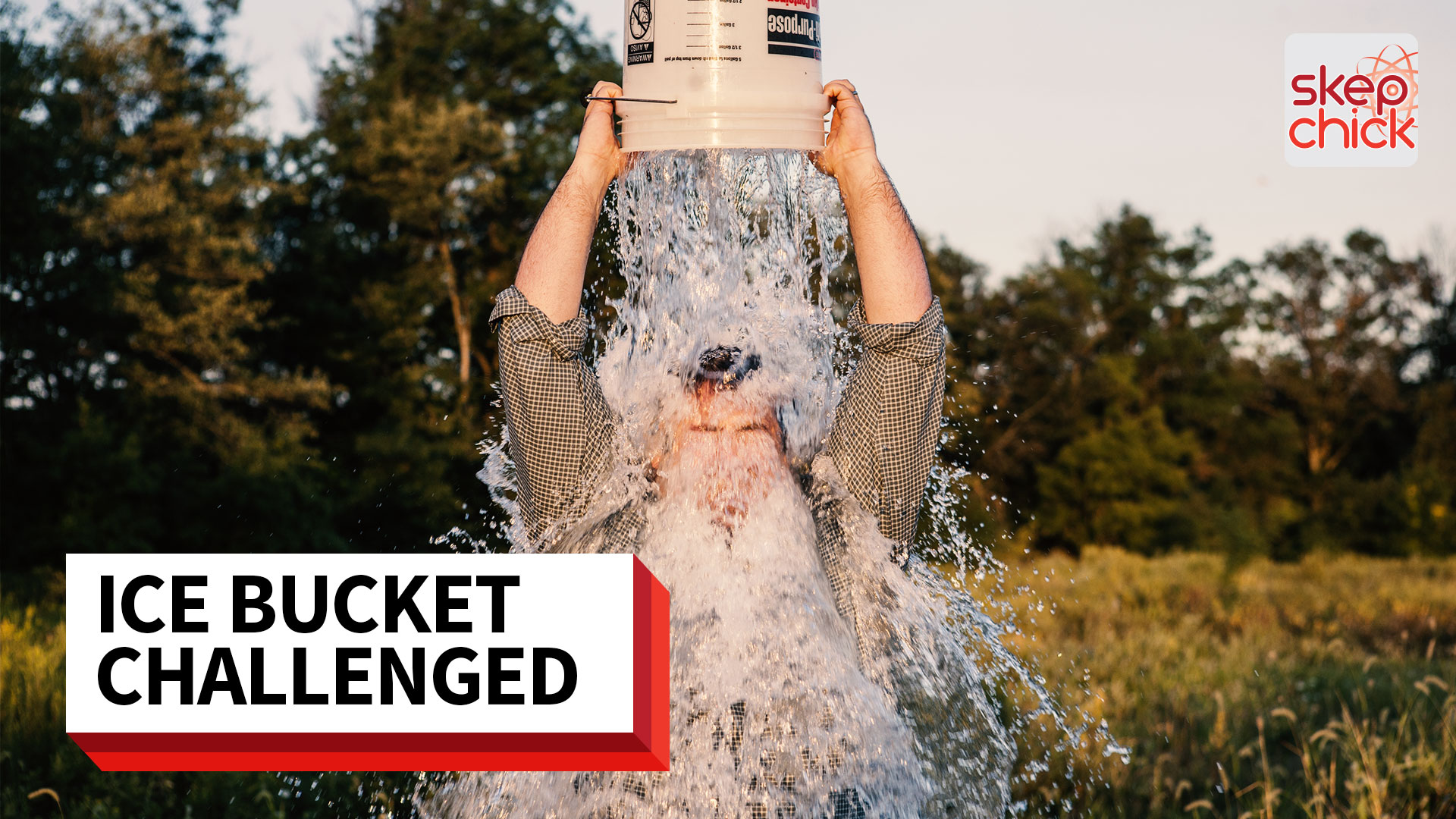Did the Ice Bucket Challenge Fund an ALS Breakthrough?

Support more videos like this at patreon.com/rebecca!
Sorta transcript:
Remember two years ago, when people were dumping buckets of ice water over their heads and then challenging their friends to do the same? The Ice Bucket Challenge encouraged people to look silly on camera while raising both money and the nebulous “awareness” for ALS, aka Lou Gehrig’s Disease.
You may also remember that at the time, many people were quite grumpy about the challenge, accusing participants of slactivism and saying that they were doing more harm than good. I made a video cautiously defending the Ice Bucket Challenge, as I found that the attacks on it were mostly cynical attempts to bash people for having fun, with no actual data to support their assertions that the Challenge wasn’t actually helping raise money for ALS research.
Now, several outlets have reported on a press release from the ALS Association claiming that the Ice Bucket Challenge funded a “significant gene discovery” in ALS research, which is being touted as a “breakthrough” by the Guardian and other newspapers.
So here is where I brag that I was right and you were all wrong and then we go on our way, right? If only. Being skeptical is so annoying sometimes.
Because it turns out that the Ice Bucket Challenge didn’t fund any ALS breakthrough at all, and reporting on it that way may actually cause more harm than good. I know, I know, I’m so contrarian!
I assure you that I still think the challenge was a great idea from a marketing perspective and a fun and positive fundraiser to participate in from the public’s perspective. It raised vast amounts of cash for the ALS Association and related groups, which is undoubtedly a good thing. I’ve lost a few friends to ALS, and it’s a horrible disease that needs better treatment options. The ALS Association does great work.
Until, that is, their latest press release. The “breakthrough” that they touted is a study that looked into a gene that was already suspected to be related to ALS. They found that it is highly likely to be relevant, but only to about 3% of cases. That’s awesome, foundational science that is necessary to the continued advancement of ALS research, but it’s by no means a huge breakthrough. ALS isn’t solved, and this doesn’t even begin to look at the possibilities for treating those 3% of ALS cases the gene may be relevant to.
Touting this as a huge breakthrough may have negative consequences. Many people seem to think that ALS is now as good as eradicated. Others will come away assuming that you can easily crowdfund important scientific advances and have all the data you need in-hand within a year or so. Unfortunately, to paraphrase Dr. Ben Goldacre, I think you’ll find it’s a bit more complicated than that. Identifying single genes isn’t the final answer to solving terrible disease, and in order to fund the massive amount of research that needs to be done before we even come close to an answer, we need our government to consistently value and invest in science, not just random people who get caught up in a meme on social media every now and again.
If you really want to help end ALS, then continue to donate to organizations that fund research, but also elect politicians who care about science! If you’re in the U.S., you’re going to get your chance soon. Don’t screw it up.





Here’s something you can do to help ALS victims (as well as others with speech disabilities): Donate your voice.
https://www.vocalid.co
This organization is collecting voice samples and building machines that will speak for people who have lost the ability to speak for themselves, and with enough samples everyone gets a unique voice.
That’s cool!
Thanks.
It was a cute way to raise awareness without spending a lot of money, but that’s about it.